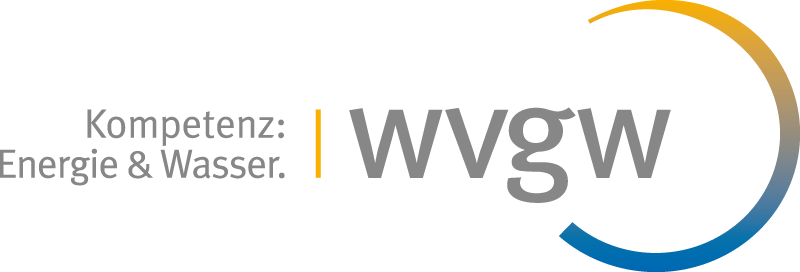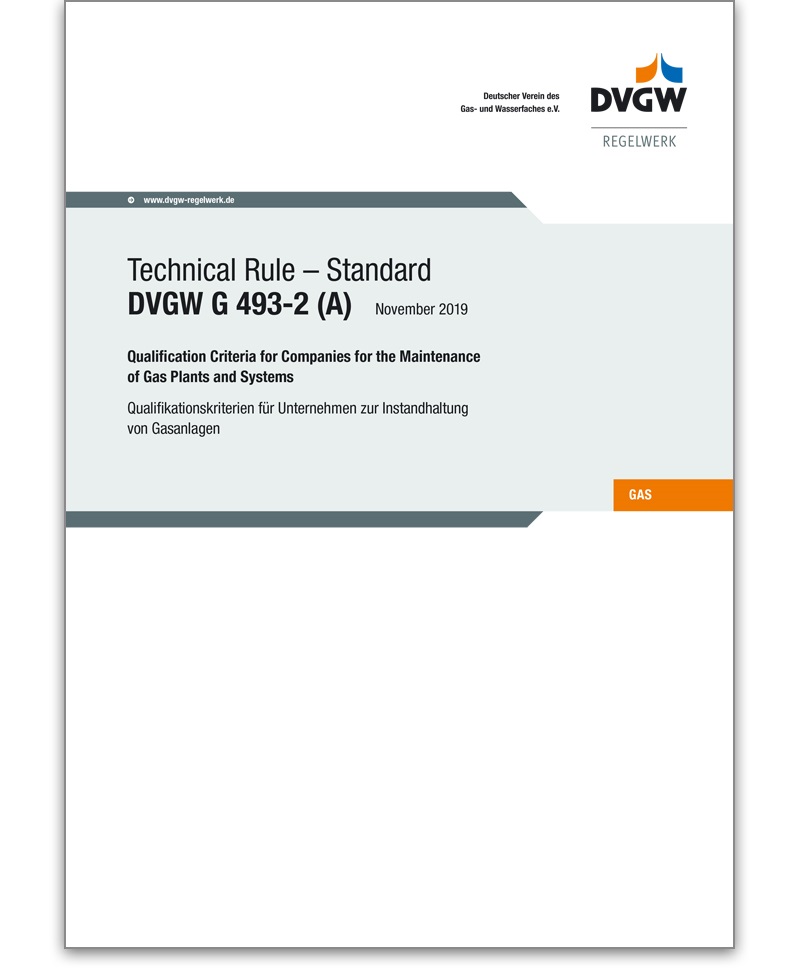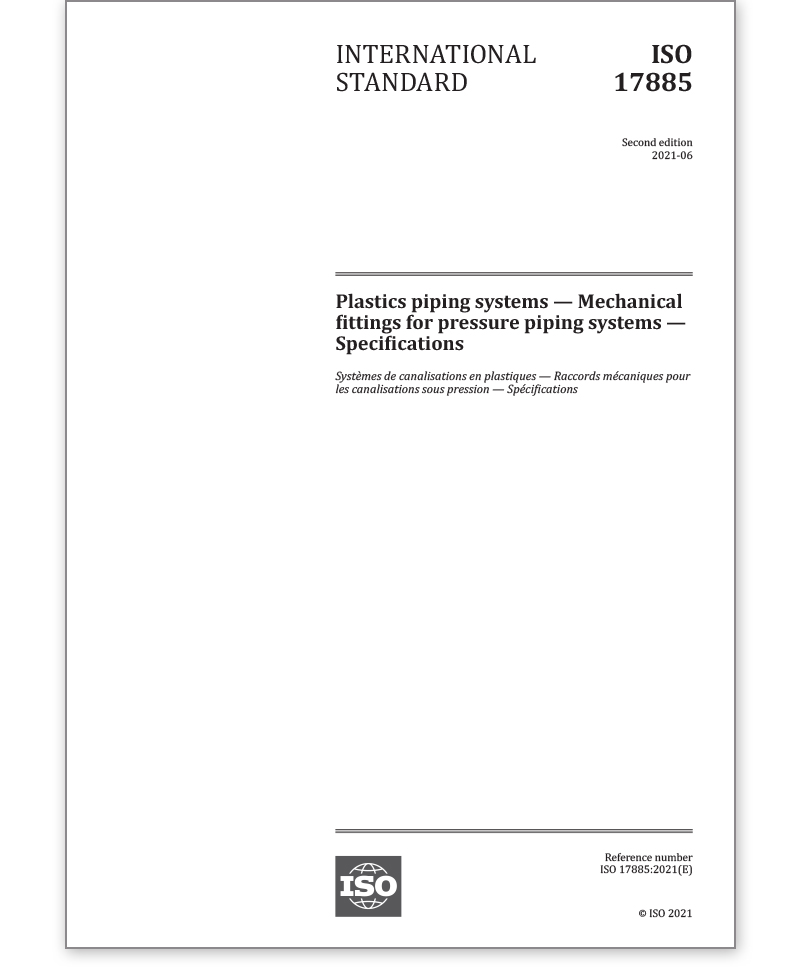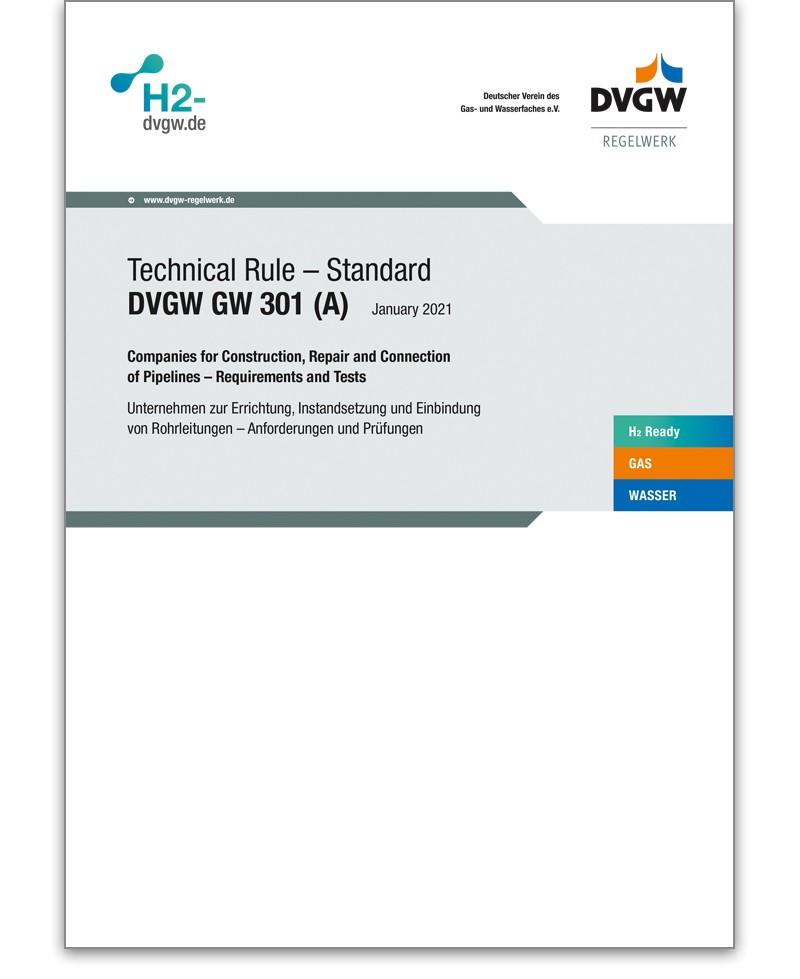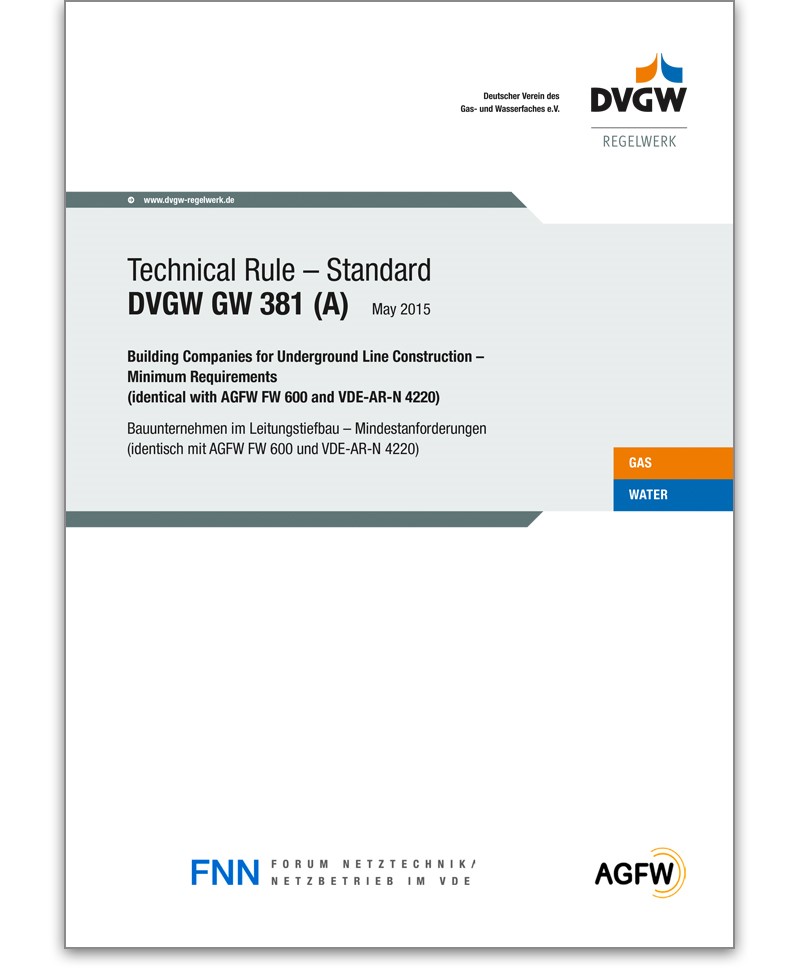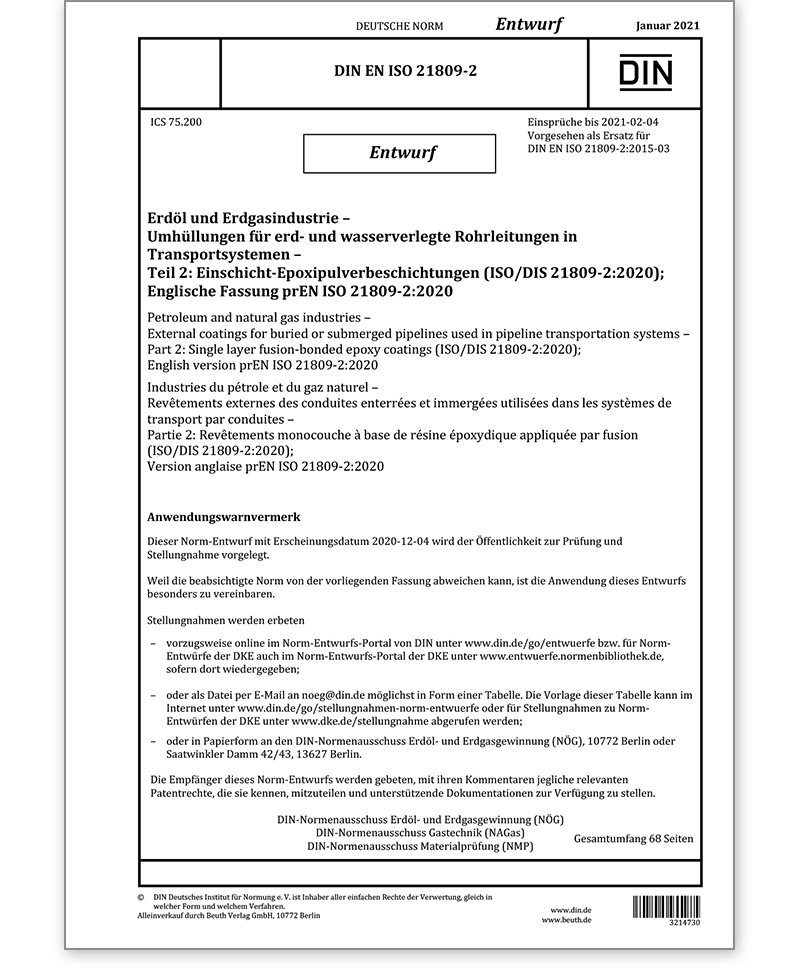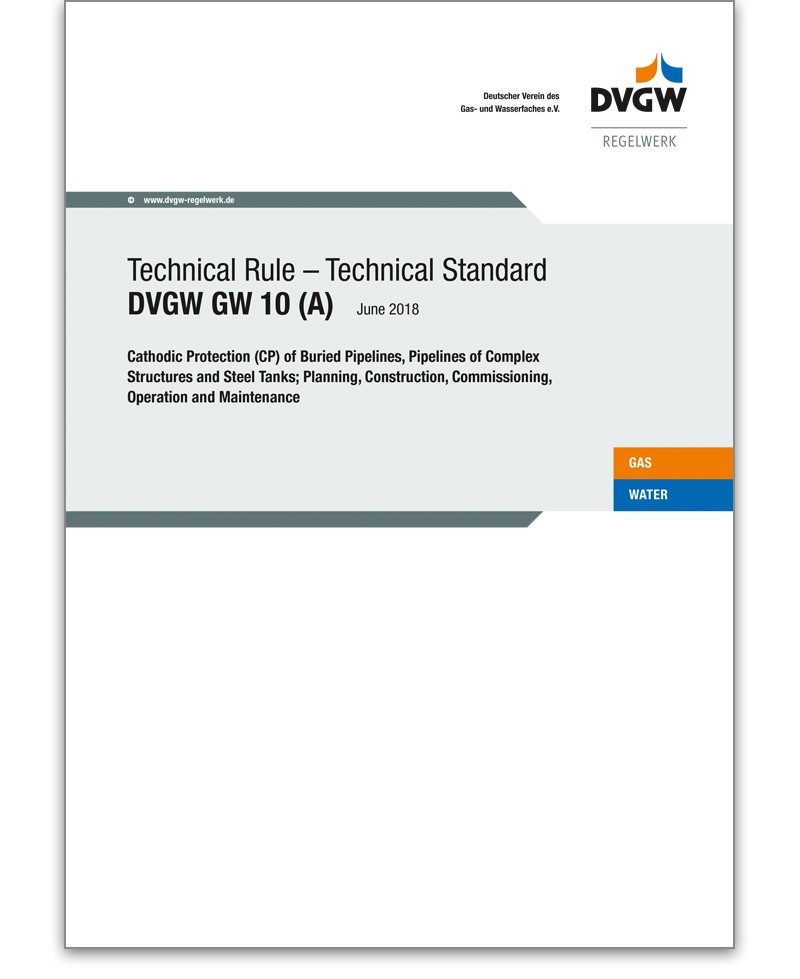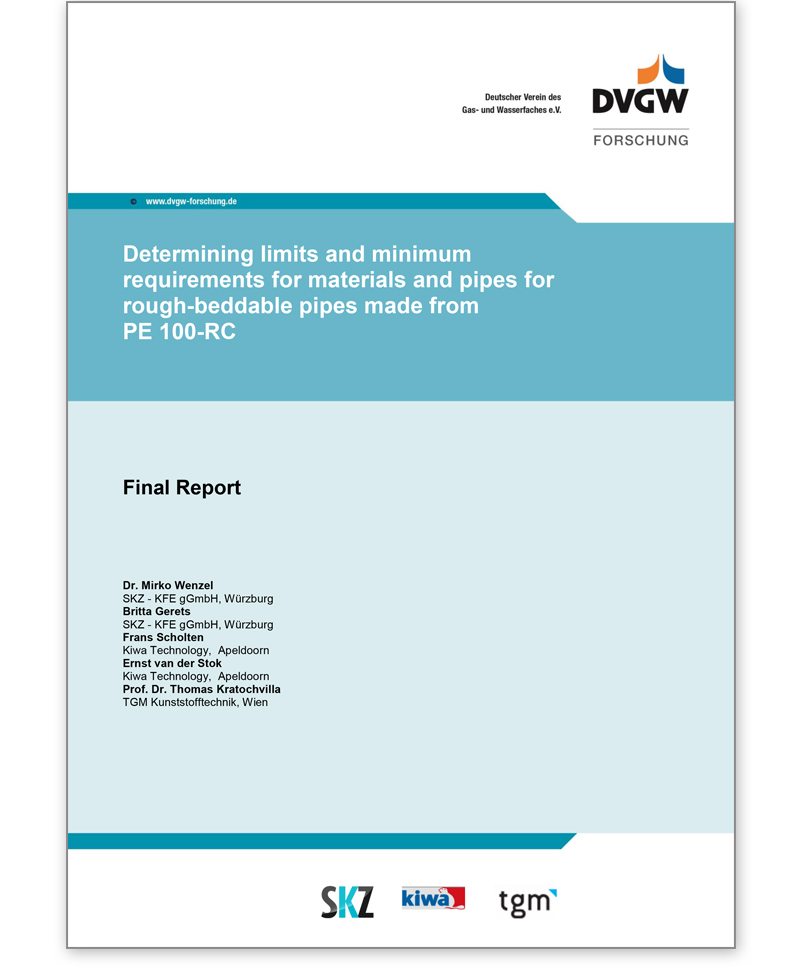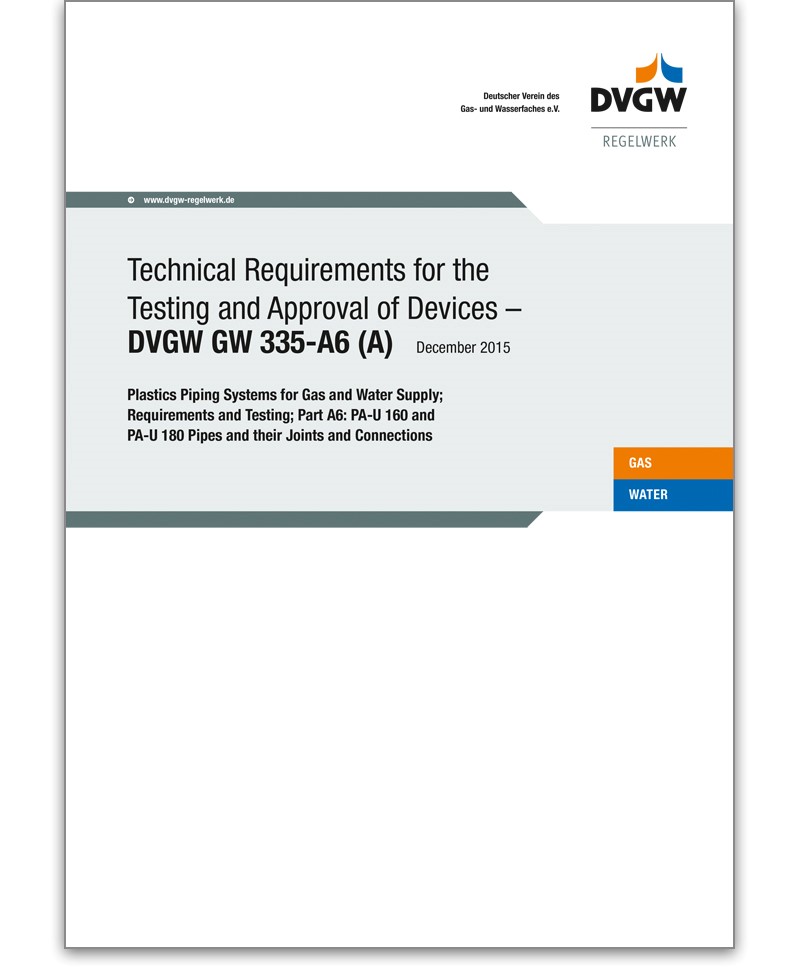Filter
–
Gas testing / certification
Regulations and standards on the requirements and testing of appliances, consumer devices, etc., for example for certification, can be found in this section.
G 493-2 Technical Rule - Standard 11/2019 -PDF-File-
62,03 €*
This standard G 493-2 encompasses personal and professional
requirements for companies providing maintenance for gas plants and
installations that fall within the scope of DVGW G 495 (A), as well as biogas
injection and refeeding plants as specified by DVGW G 265-2 or hydrogen
injection plants as specified by DVGW G 265-4 (M).Companies which, within the
context of comprehensive plant management, either as original operators or as
contractors, are responsible for the maintenance of energy plants, and possess
the required personal qualification and organization according to DVGW G 1000
(A), may conduct the maintenance of gas plants without certification as defined
by this standard within the network which they have the abovementioned
responsibility for. The prerequisite for the maintenance without certification
as mentioned above is that the expert and tech-nical conditions detailed in
this standard are met by the company’s own workforce or by service providers
with a TSM certification or other corresponding certifications. The company
shall appoint the experts re-sponsible for maintenance in writing. The
fulfilment of these conditions can be verified e.g. during a TSM review
according to DVGW G 1000 (A).
ISO 17885 06/2021 -pdf-file-
183,51 €*
This document ISO 17885 specifies the requirements for
mechanical fittings for joining plastic piping systems for the supply of
gaseous fuels, the supply of water for human consumption and other purposes, as
well as for industrial application.
It provides a unified set of test methods to check the
performance of the fittings, depending on their intended use.
It is the responsibility of the purchaser or specifier to
select the appropriate fitting, taking into account their particular
requirements and any relevant national guidance or regulations and installation
practices or codes.
GW 381 Technical Rule - Standard 05/2015
39,92 €*
For the purposes of this Standard GW 381, the term minimum requirements implies that further requirements can ensue from technical rules and legal provisions and/or that the ordering party may stipulate further requirements, in particular in the presence of special features or needs for protection or other constraints. The optional criteria shall, without claiming to be exhaustive, be considered guidance for the ordering party who shall decide on the need for further requirements. If a company consists of several units, this technical rule applies to the units in charge of underground construction and, without exception, to independent subsidiaries as well. A subsidiary shall be assumed to be independent if, in effect, it actually controls most operations and/or if the head office of the company is unable to provide the supervision of the staff and the construction sites as required.
GW 335-A6 Technical Requirements 12/2015
62,03 €*
Testing and Approval of Devices have been prepared by the project group Plastics in Gas and Water Supply Systems on behalf of the Technical Committees on Gas Distribution, Gas Transmission Lines and Water Supply System Components.
